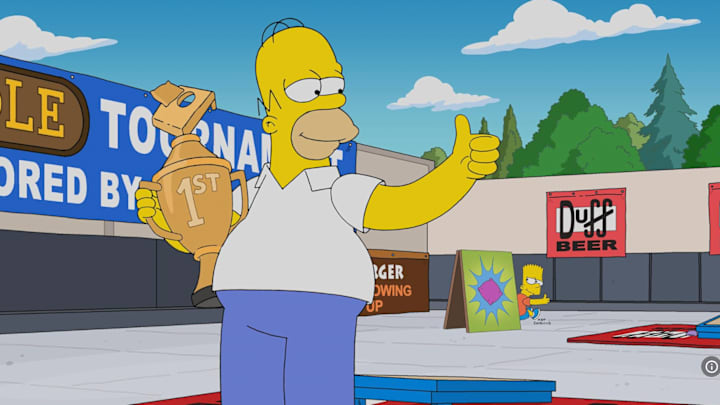The Simpsons has been on for so, so long. The show’s episode count currently sits at more than 760, which is a truly huge amount of television. Naturally, it’s not the same show it once was; early plot lines were basically grounded in reality, but 35 years of never aging and occasional sojourns to space will knock that out of any show.
Fans and former fans debate endlessly about when the golden era of the show began and ended, and there are wildly differing attitudes toward new episodes. While millions of viewers enjoy it as a perfectly entertaining show, even if it is no longer the must-see cultural behemoth it once was, others have come up with elaborate theories as to why The Simpsons of 2024 isn’t The Simpsons of the early 1990s.
Early-episode plots involved things like financial worries, pet misbehavior, and classroom rivalries, while later stories involve regular appearances from A-listers and occasional absurdity like Mr. Burns capturing the Loch Ness Monster or Homer battling a tribe of elfin jockeys. One fan theory posits that the last 33 seasons have been a series of dreams conjured up in the comatose mind of Homer after a vending machine fell on him in season 2—this, say some fans, is the only way that the more outlandish plots of later seasons can possibly make sense, as well as allowing characters to have decade after decade of adventures without physically aging.
However, the writers of the show are more aware of the cultural weight of The Simpsons than anyone; they’ve grown up as fans and ended up with their dream jobs, while knowing it’s pretty much impossible for any new episode to have the impact of, say, And “Maggie Makes Three” (a.k.a. the “Do It For Her” episode).
As the decades have passed, The Simpsons has become more and more meta and self-referential, which is understandable. After all, you can’t hold a mirror up to American culture without acknowledging that The Simpsons is an iconic part of it. As such, they’ve acknowledged—and in doing so, debunked—a whole lot of fan theories.
There’s a famous piece of creepypasta, for instance, called Dead Bart, which details a fictional ‘long lost’ episode of the show in which Bart dies. This theory shows up in the season 30 episode “Bart’s Not Dead” (within a larger plot in which Homer and Bart make a Christian movie that grosses $100 million).
The coma theory has also been acknowledged on the show. It crops up in season 34’s “Lisa The Boy Scout,” a 22 Short Films About Springfield-type anthology episode showcasing “deliberately terrible ideas” by the show’s writers (as well as including self-deprecating clips from some of the most critically panned episodes of the show’s run). One of the segments features Homer awakening from, yes, a decades-long coma, which he has been in since season 2’s “Bart The Daredevil.”
It’s pretty ingenious, really—The Simpsons somehow manages to have its cake and eat it too, acknowledging the fan theory and the occasional fan dissatisfaction that led to it, while also pointing out that it would make for a massively disappointing revelation. Or, as Comic Book Guy might put it: the Worst. Episode. Ever.
